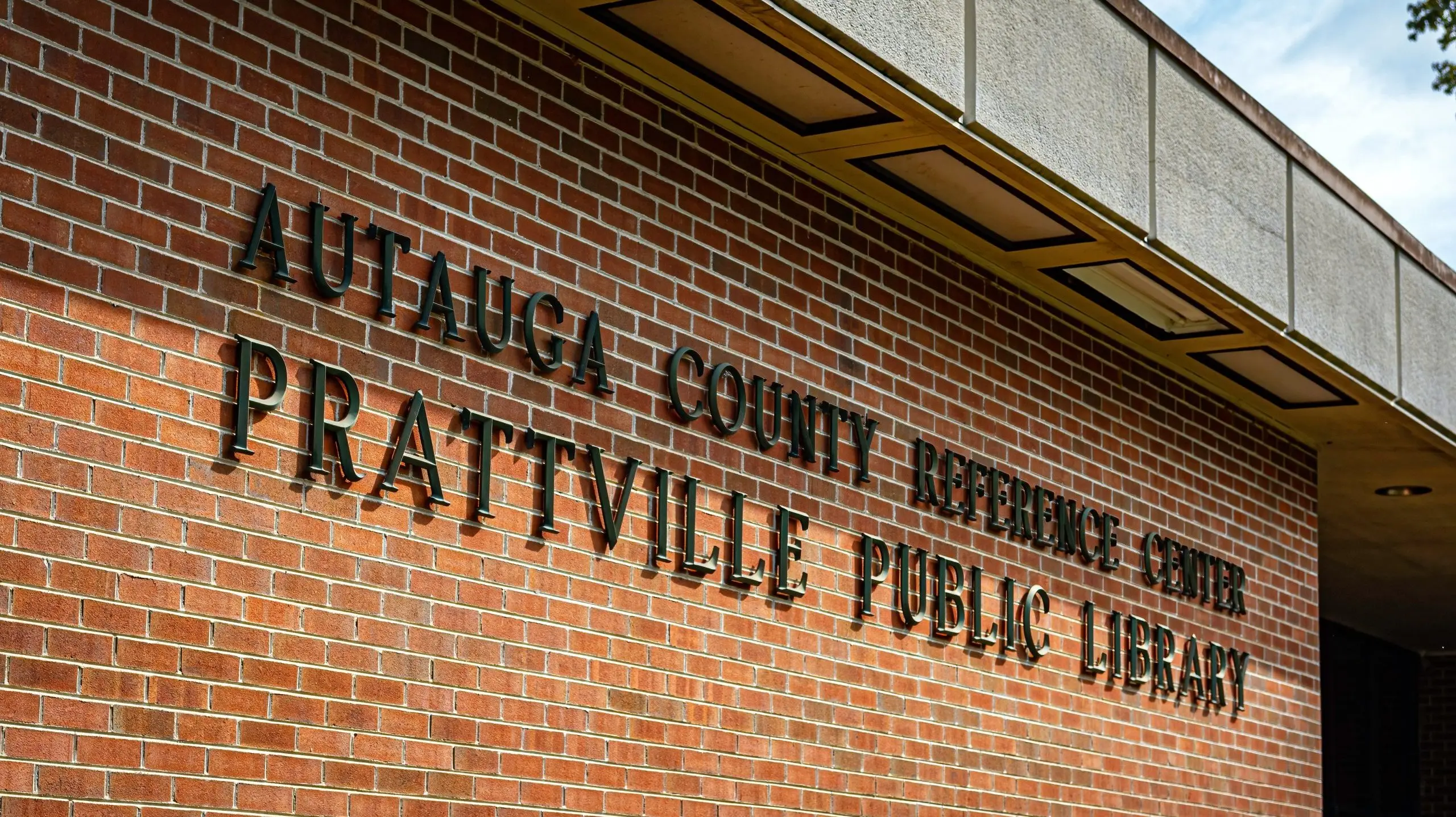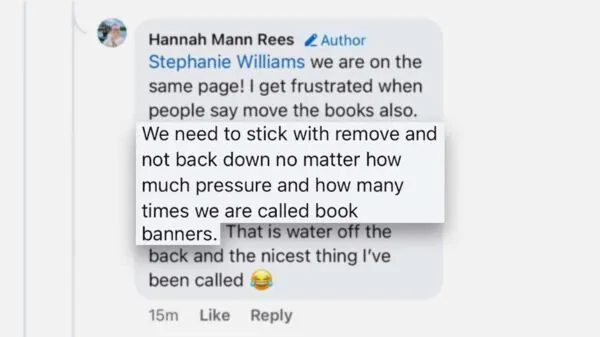A coalition including Read Freely Alabama, the Alabama Library Association and multiple adult and minor patrons of the Autauga-Prattville Public Library filed a motion in federal court Thursday to block policies recently enacted by the new board.
The complaint filed in the U.S. District Court for the Middle District of Alabama Thursday afternoon asks the court to enjoin the policy on the basis that its provisions are overbroad, vague and implement unconstitutional content-based discrimination.
“A public body ‘has no power to restrict expression because of its message, its ideas, its subject matter, or its content,'” the coalition’s counsel wrote, citing the 1972 Supreme Court decision in Chicago Police Dept. v. Mosley. “The Autauga-Prattville Public Library Board of Trustees is doing so anyway. The Board has enacted a set of policies that prevent both children and adults from accessing wide swaths of books and other library material in violation of the First Amendment. These policies facially shun speech because of its content, overbroadly restrict access to material far beyond what the Supreme Court permits, and operate through vague standards ripe for arbitrary administration.”
The policy adopted by the new APPL board of trustees on Feb. 8, 2024, prohibits the library from purchasing or otherwise adding to its collection “any material advertised for consumers ages 17 and under which contain content
including, but not limited to, obscenity, sexual conduct, sexual intercourse, sexual orientation, gender identity, or
gender discordance.”
The board at the time had just undergone a monumental shift in its makeup after the Autauga County Commission decided to depart from an unwritten gentleman’s agreement that had been operating for decades in which the library board recommends nominees when vacancies occur. In response to the perceived slight, the entirety of the remaining board members resigned, paving the way for the county to appoint three more individuals to the board and capture a 4-3 majority.
Chair Ray Boles, nominated by Commissioner Larry Stoudemire and unanimously approved by the commission, said in a recent committee meeting that the board dropped “really far right” policies as part of a broader statewide strategy and explained his plans to curtail the local policies to match state policies.
Read Freely Alabama is the primary group opposing such policies in Prattville and beyond, originally forming as Read Freely Prattville to counter a group calling themselves Clean Up Prattville. That group has now gone statewide as well under the name Clean Up Alabama.
“This is about who should get to decide what books our kids get to read — parents or politicians,” said Angie Hayden of Read Freely Alabama. “Though we come from across the religious and political spectrum, the group who came together to take action in the case share an intense pride in our home state — and its deep history in the fight for civil rights — and we cannot sit on the sidelines at this critical moment.”
Laura Clark, a Clean Up Alabama supporter that now serves as the board’s attorney, hinted at her legal argument during a library board meeting last year. Clark and her husband Matt Clark, now a senior staff attorney for Alabama Supreme Court Chief Justice Tom Parker, told the board that books on library shelves do not fall under the First Amendment because they are considered “government speech.”
Laura Clark cemented this as her legal theory in an editorial piece for the far-right, anti-LGBTQ website 1819 News.
“Books in a public library are considered government speech according to United States v. American Library Assn., Inc. (2003),” Clark wrote in the opinion. “In this case, the Supreme Court explained that the government has the discretion to make content-based judgments in deciding what private speech to make available to the public — private speech such as books. Thus, removing inappropriate books from the children’s section is not a First Amendment violation. In fact, the First Amendment does not apply to this issue. Further, the library has broad discretion to make the decision to remove these books or move them around.”
Will Bardwell, an attorney representing the plaintiffs, said that they have a different understanding of “government speech.”
“The courts have described government speech as the sort of speech that denotes an endorsement from the government,” Bardwell said. “There is nothing about the history of public libraries that suggests its books carry some sort of government endorsement. Libraries are supposed to be places where competing ideas can be found and readers are trusted to draw their own conclusions.”
The state of Florida attempted a similar “government speech” argument in a case involving the censorship of books in the Escambia County Schools libraries. U.S. District Judge Kent Wetherell denounced that argument in a January ruling, questioning “how any reasonable person would view the contents of the school library (or any library for that matter) as the government’s endorsement of the views expressed in the books on the library’s shelves.”
Regardless, the idea that library books are government speech, not first amendment speech, is the reason the Clarks gave as the only thing preventing their conservative law firm, the Alabama Center for Law and Liberty, from suing the library board at the time.
Instead of suing the board, Clark apparently worked alongside Clean Up Alabama to draft the policies that the board adopted on Feb. 8 despite not yet being voted in as the board’s attorney.
“The Autauga-Prattville Public Library Board of Trustees’ clear partnership with the Moms for Liberty-adjacent Clean Up Alabama makes them the latest in a concerning trend of far-right efforts to suppress books that reflect perspectives they don’t agree with in communities across the country,” said Craig Scott, president of the Alabama Library Association. “As state legislators rush to expand on the policies put in place in Prattville, it is crucial that the courts
make clear that in our democracy, you cannot discriminate or restrict the freedom to read.”
The plaintiffs in the case are being represented by Democracy Forward, a non-profit legal organization that is working with neighbors in communities challenging other book ban policies throughout the nation, and Wiggins Childs, an
Alabama-based law firm with a strong civil rights practice.
“The freedom to read is fundamental to democracy, and extremist efforts to impose their personal beliefs on policies that dictate what books can be in public libraries is dangerous for democracy,” said Skye Perryman, president and CEO of Democracy Forward. “Democracy Forward is very honored to work with families and librarians in Alabama to stop
this extremist attempt to censor books.”



















































